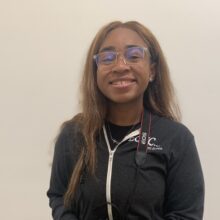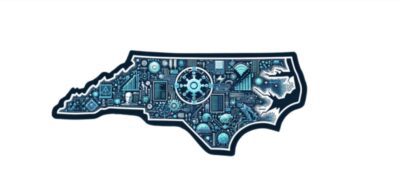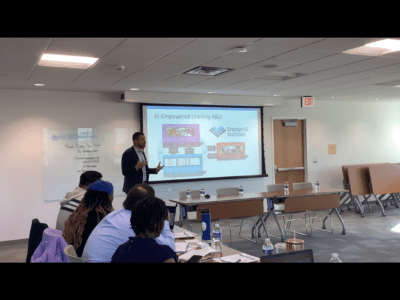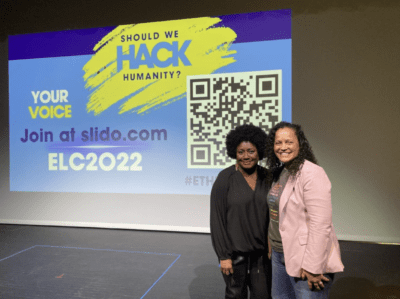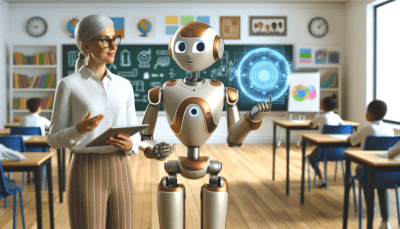
|
|
Artificial intelligence (AI) has a growing presence in government, businesses, and particularly schools. In January, the North Carolina Department of Public Instruction (DPI) released a guidebook for the use of generative AI in our public schools.
According to Merriam-Webster, artificial intelligence is defined as, “The capability of computer systems or algorithms to imitate intelligent human behavior.” With the strides made in generative AI last year, schools are inquiring about how to incorporate it across all fronts, including with students with learning differences. In North Carolina, students with learning differences are served under the Office of Exceptional Children.
“We also know that it’s very important that all of our students have access to technology, not just students without disabilities, but students with disabilities, so that they can have the maximum opportunity to learn so that they’ll not be behind in this area,” said Stephen Byrd, associate professor of education at Elon University. “We’re very conscious of the fact that technology and AI especially can be controversial.”
Helping to write IEP documents
Julian Dean is an exceptional children’s resource teacher at East Chapel Hill High School. She also serves as chair of the school’s exceptional children department.
As department chair, she encourages her team to embrace technology. She said technology is effective for students with learning differences, especially screen readers, audiobooks, and technology that adjusts text to a student’s reading level.
Dean has used AI to write goals for Individual Education Plans (IEPs). She enters the student’s grade level, learning difference, and the kind of goal that she needs, and AI gives her a variety of measurable objectives she can use as ideas.
Dean said that she then rewrites what the platform gives her to make sure it makes sense and is relevant to the student. While she sees it as a good tool to use if you are stuck, she said that no one should be using the information she gets from it as is.
“I think with everything, you can’t just take what it gives you and use it the way that it is,” Dean said. “You have to take it as a starting point and know that you probably need to modify it because an IEP has the word individual in it — you have to make sure that it is appropriate for your actual individual student.”
Helping parents advocate for their child
AI can be used to summarize information. If parents are receiving dense documents from their child’s school, including IEP documents, they can use AI to summarize the text. They can also ask it to outline a letter to the school for them.
Faith Moseley works as a family support service manager for the Albemarle Alliance for Children and Families. She provides support for students with behavioral and learning differences. When she is not advocating for parents and children with their schools, she is recruiting parents to take their classes on how to approach behavioral challenges.
In addition to using AI to craft marketing emails for parents about their program, Mosely said she also uses it to help parents write letters to their school when they are requesting accommodations for their child. She inputs their knowledge and uses the platform to help everything flow together. She said it helps demonstrate the parents’ initiative to the school.
“They are reading, they are studying, they are learning the rights of their child,” Mosely said.
Thinking outside the box
OpenAI has released suggestions on how teachers can use ChatGPT to generate lesson plans and create prompts for lessons and quizzes. It also suggests student teachers use AI as a tool to role play difficult conversations. It can be used to create responses and help prospective teachers practice with information they learned.
Matthew Moreland, a school counselor at Exploris Middle School in Raleigh, uses ChatGPT with his lunch groups to generate stories with his students after they have demonstrated “big emotions” in class, such as anger. They can tell the AI to include the names of the students and focus on a particular genre, such as when his students say they want to be in a school full of superheroes.
Moreland said creating these stories keeps them engaged.
“At the same time, it talks about anger and feelings and it kind of wraps it up, and then we can have further conversations about it afterwards,” Moreland said.
Using AI responsibly
Teachers, administrators, and students are encouraged to use technology responsibly when in the classroom.
“There’s not one piece of technology out there. There’s many, and so I just say to learn about it, if you’re curious about it, or if you’re worried about it, just read up on it, see how other schools are doing,” Moreland said.
More information on what the state of North Carolina finds as appropriate uses for artificial intelligence can be found here.
